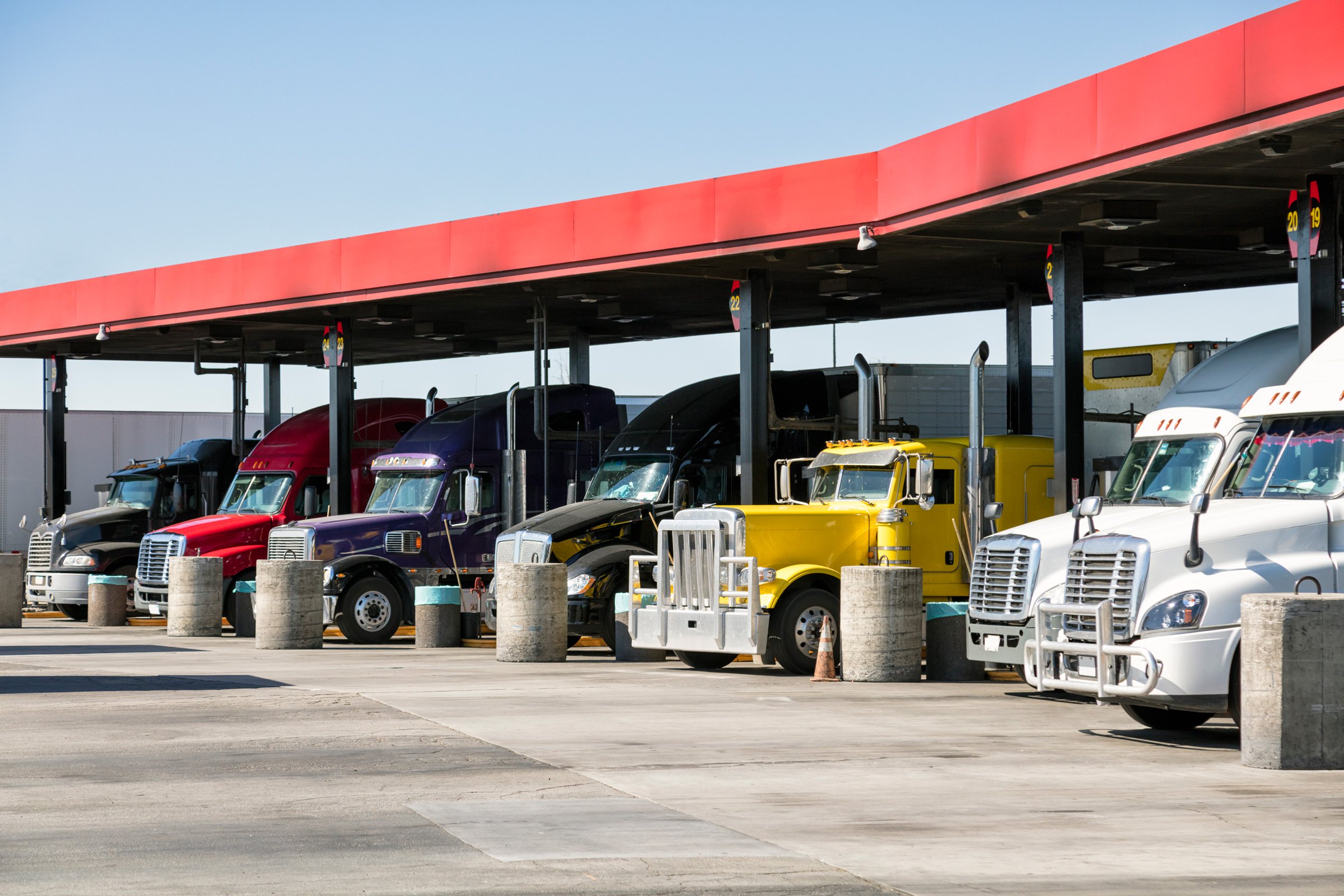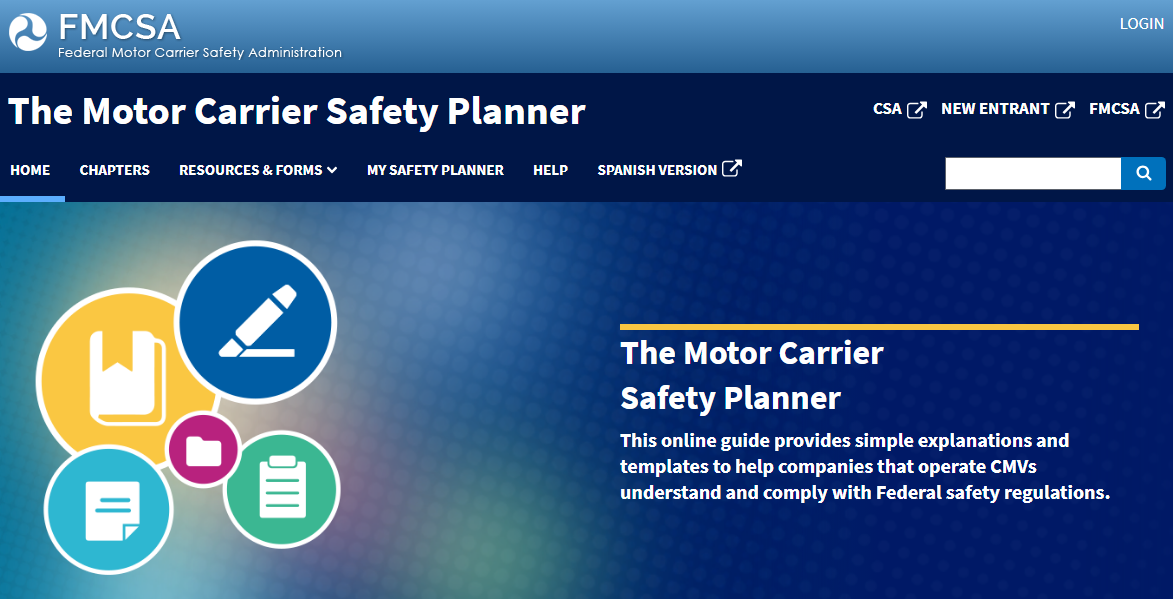Instilling a Culture That Embraces Fuel Economy

Fuel costs have traditionally been the largest line-item expense for motor carriers. According to the American Transportation Research Institute (2017), “[Fuel costs] generally account for approximately 30 to 40 percent of a motor carrier’s cost per mile.”1 If fleet managers want to optimize their operations and reduce costs, they should focus on instilling a culture that embraces fuel economy.
The first step in changing this aspect of the company’s culture is to audit current fuel consumption to determine how much is being consumed so reduction goals can be established. For smaller motor carriers, the focus may be on only company trucks, but larger fleets might include all company vehicles, including employee-owned vehicles, to measure fuel consumption across the board. Gathering this baseline data will be easier if the company operates its own fuel tanks, uses fuel cards, or has vehicles fitted with telematics.
Once a baseline of fuel consumption is established, set goals to lower usage, then communicate your strategy to the entire company. This risk management effort will require buy-in from everyone, so it is imperative that senior management visibly support this effort and promote individual and departmental accountability. Here are some ideas to help achieve these goals:
Cut Mileage
The simplest way to reduce fuel consumption is by cutting mileage. By identifying crossover routes, incompatible time slots, outlying jobs, and the extra miles traveled to avoid traffic hotspots, a fleet can optimize routes to save on fuel costs. Other benefits include faster route completion times and more productive drivers as well as a reduction in mileage-related secondary costs like lease and maintenance costs, depreciation, etc.
Identify Root Causes
Excessive fuel consumption could be the result of a number of factors. Any of the following - driver behavior, training deficiencies, operational issues, or equipment problems - could be the root cause. For example, drivers with a propensity for speeding will burn fuel faster. To correct this performance issue, do not assume training is the answer, for the root cause could be the company culture in that drivers are being pushed by dispatch to drive harder. Higher fuel consumption might also be traced to a particular customer’s location, where excessive idle time is common due to long lines to get loaded and unloaded.
Provide Incentives
Rewarding the most fuel-efficient drivers is an effective way to create healthy competition and instill a culture that embraces fuel economy. Peer pressure can be a great motivator to help bring about positive change; so many successful motor carriers have posted leaderboards in the driver room and around the facility for all to see. Just be sure to make it a level playing field and take into consideration vehicle type, routes, etc. At the conclusion of each contest period, let the winner choose his or her prize. Make it meaningful, something he or she will take to heart. Money for money’s sake is easily forgotten, so give the winner something he or she will cherish, like a weekend getaway with the family. Word will spread that being the most fuel-efficient driver pays off.
Call to Action
-
Identify three ways the fleet can reduce fuel consumption.
-
Require drivers with speeding violations to attend mandatory fuel savings training.
-
Implement a fuel savings contest and reward the most fuel-efficient drivers.
1Read more in "An Analysis of the Operational Costs of Trucking: 2017 Update" at http://atri-online.org/wp-content/uploads/2017/10/ATRI-Operational-Costs-of-Trucking-2017-10-2017.pdf
Note: These lists are not intended to be all-inclusive.
The information in this article is provided as a courtesy of Great West Casualty Company and is part of the Value-Driven® Company program. Value-Driven Company was created to help educate and inform insureds so they can make better decisions, build a culture that values safety, and manage risk more effectively. To see what additional resources Great West Casualty Company can provide for its insureds, please contact your safety representative, or click below to find an agent.
© Great West Casualty Company 2019. The material in this publication is the property of Great West Casualty Company unless otherwise noted and may not be reproduced without its written consent by any person other than a current insured of Great West Casualty Company for business purposes. Insured should attribute use as follows: “© Great West Casualty Company 2019. Used with permission by Great West Casualty Company.”
This material is intended to be a broad overview of the subject matter and is provided for informational purposes only. Great West Casualty Company does not provide legal advice to its insureds, nor does it advise insureds on employment-related issues. Therefore, the subject matter is not intended to serve as legal or employment advice for any issue(s) that may arise in the operations of its insureds. Legal advice should always be sought from the insured’s legal counsel. Great West Casualty Company shall have neither liability nor responsibility to any person or entity with respect to any loss, action, or inaction alleged to be caused directly or indirectly as a result of the information contained herein.





